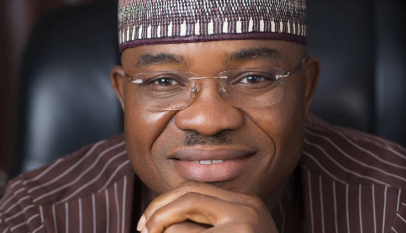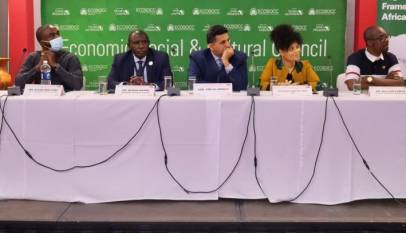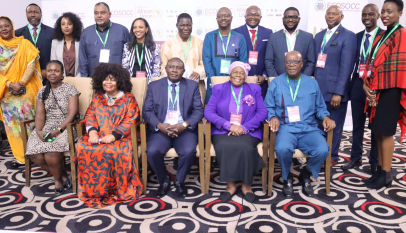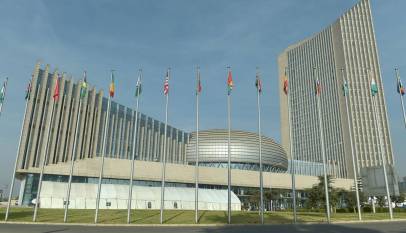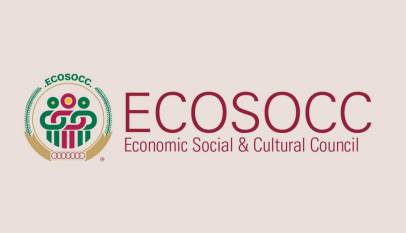INTERVIEW | My plans towards making AU ECOSOCC secretariat live up to its desired objectives – William Carew
William Carew, principal coordinator of the newly established African Union Economic, Social and Cultural Council (AU ECOSOCC) Secretariat, based in Lusaka, Zambia, speaks about his plans for the AU’s advisory organ, aimed at promoting African Civil Society’s participation in the implementation of policies and programmes of the Union
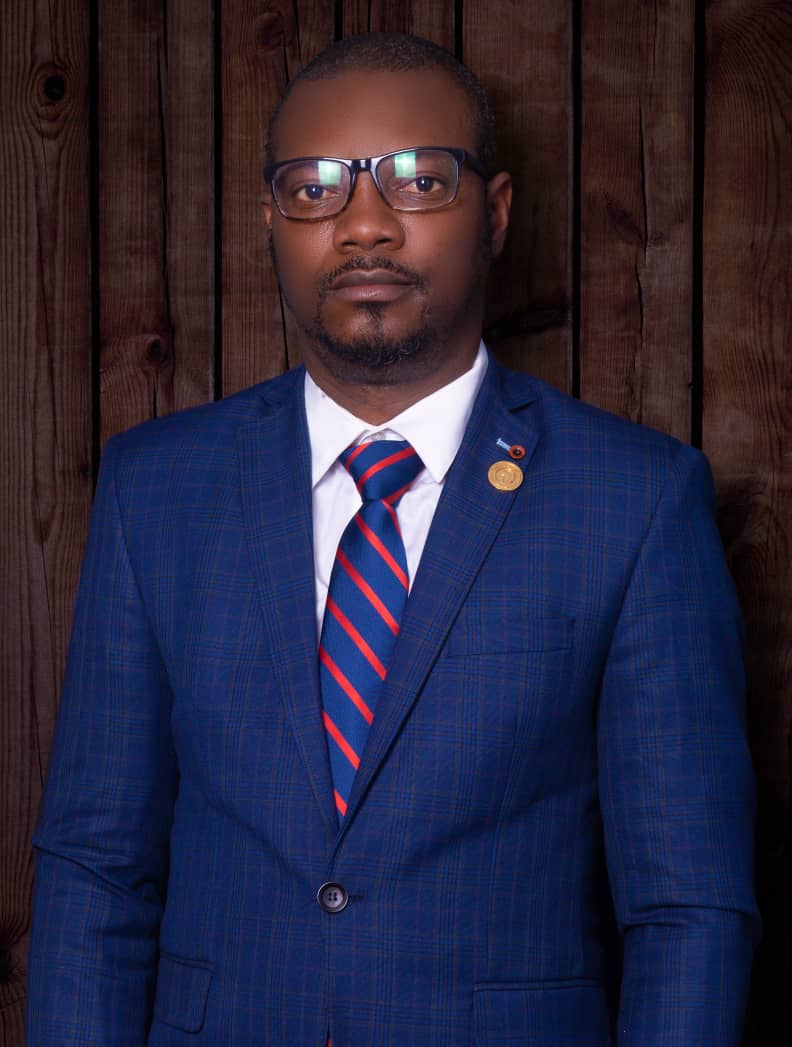
As African Union Economic, Social and Cultural Council (AU ECOSOCC) Secretariat’s new principal coordinator, how do you plan to strengthen it as an advisory organ of the AU composed of different social and professional groups from across the 55 Member States of the AU?
First of all, I will work with the staff at the ECOSOCC Secretariat to see to it that we set the right priorities as well as ensure staff’s efforts are directed towards achieving the set goals of the Secretariat. As you know, every organization has a set of goals and objectives that they seek to achieve. I will also proactively seek to increase the learning and knowledge base of ECOSOCC as an institution, so as to make it better placed to play the technical advisory role it is meant to provide to the AU.
So, based on the strategic and annual plans of the organ, I would work to highlight critical areas for development, alongside members of the AU ECOSOCC General Assembly, the ten technical cluster committees and staff of the secretariat, to restructure the diversity of expertise in the Council so as to ensure we are able to make more quality technical input into policies and programs of the AU.
I further intend to collaborate with a multiplicity of stakeholders across various levels – national, regional, continental, international – including development partners, Pan African institutions, Diaspora-based organizations, the Government of Zambia (which is hosting the Secretariat) and all other Member States of the AU. I will also continue to support effective collaborations and partnerships with relevant organizations and experts on key program priorities at national, regional, continental, and international levels. To this end, I will ensure effective coordination between ECOSOCC and other organs of the Union, with particular reference to policy matters.
Moreover, I will work to ensure effective synergy, understanding and healthy relationship between staff at the ECOSOCC Secretariat and ECOSOCC members, partners, and collaborating agencies. In this regard, I will ensure the establishment of effective liaison between the Council and the AU Commission, one that will guarantee free flow of information between AU Commission and the Council. These are my priorities in terms of presiding over the affairs of the Secretariat which are aimed at ensuring the Secretariat is able to live up to its desired objectives.
AU ECOSOCC was established under the provisions of Articles 5 and 22 of the African Union’s Constitutive Act, as the vehicle for building a strong partnership between governments and all segments of African Civil Society. Can you tell us about ECOSOCC’s lofty mandate?
The ECOSOCC is primarily meant to provide an opportunity for African Civil society organisations (CSOs) to contribute to the AU’s principles, policies and programmes; it is meant to serve as a platform for the AU to harness civil society expertise in its work as well as the work of its organs, more especially, the various departments at the AU Commission, for the effective translation of the Union’s objectives, principles, and policies into concrete programs.
In this regard, ECOSOCC contributes advisory opinion in the formulation, implementation and evaluation of AU programs; it undertakes studies and makes recommendations aimed at promoting the realization of AU’s vision and objectives, as well as fostering and consolidating partnership between AU and African civil society organizations.
So, ECOSOCC has been serving as a platform through which diverse civil society organizations participate in the formulation and implementation of various national, regional, and continental development-related policies, processes, and programs of the Union. These include ECOSOCC’s active participation in the various African Union Election Observation Missions (AUEOMs) across Member States, in a bid to ensure free and fair elections in the Member States.
ECOSOCC has also been actively involved in crucial AU programs on countering violent extremism, terrorism and the illicit proliferation of Small Arms and Light Weapons (SALW) in Africa, through the operationalization of the Livingstone formula; ECOSOCC provided technical advisory opinion to the AU Peace and Security Council (PSC) on strategies for ensuring peace, security, and stability on the continent.
ECOSOCC has also been playing a pivotal role in the Security Sector Reform (SSR) program being championed by the Peace and Security Department (PSD) at the AU Commission, by sensitizing and training CSOs, Regional Economic Communities (RECs) and other security stakeholders on SSR concepts. We have also been sensitizing national, regional, and continental stakeholders on the role of non-state actors, including civil society, media, and academia in democratic control of the security sector as well as appropriate approaches for enhancing security governance in African security institutions.
ECOSOCC also advocate and promote ownership of SSR by Member States at national level and being a technical advisory organ of the AU, ECOSOCC also provided technical input in the development of strategies for addressing issues of migration by recommending a human rights-based approach to migration governance, as a framework for mainstreaming international migration within the global policy agenda. So, ECOSOCC has been playing a pivotal role in terms of providing advisory opinion or policy guidance aimed at addressing the numerous challenges Africa is grappling with.
Like you said, ECOSOCC has made significant progress which, we understand, also includes the implementation of its first strategic plan. What have you achieved with the ECOSOCC’s first strategic plan?
It is worth noting that the first ECOSOCC strategic plan was designed to cover a period of only two years, i.e. January 2017 – December 2018. This is due to an African Union policy practice that asks all organs to align their strategic plans with the 2013 – 2023 First Ten Year Implementation Plan (FTYIP) of Agenda 2063. The 2013 – 2023 FTYIP was divided into two five-year mid-term plans i.e 2013 – 2018 and 2019 – 2023. So, the two year plan was meant to cover the last 2 years of the first five-year plan of the FTYP of Agenda 2063, taking into consideration the time the strategic plan was developed.
ECOSOCC had planned to develop another five-year strategic plan to cover the second part of Agenda 2063’s FTYIP i.e. 2019 – 2023. However, the process was delayed because ECOSOCC was requested to; first of all, undertake an in-depth study focused on the challenges it was facing and how to address them. The study was meant to provide useful recommendations that will inform the Council’s strategic plan as well as provide strategic direction for the Council in a dynamic and changing environment.
The strategic plan will now run between 2020 and 2023, in line with the AU’s priority projects under FTYIP of Agenda 2063 as well as other emerging issues like migration and illicit financial flows so as to give the civil society and non-state actors the opportunity to contribute towards addressing some of these challenges. Looking at global dynamics and emerging issues, the strategic plan will also focus on those contemporary and emerging issues and see how best, as the AU’s civil society organ, we will provide technical policy guidance for the AU to take necessary actions aimed at addressing these contemporary and emerging issues.
It is imperative to also note that ECOSOCC is in the process of developing another strategic plan that would be aligned with the second phase of the 10-year implementation plan for Agenda 2063. In this regard, the organ looks forward to leveraging the report of its in-depth study, for recommendations that will profoundly inform the priority areas to focus on while setting the goals of the strategic plan as well as formulate the best approach to accomplish the set goals in the strategic plan.
How has ECOSOCC’s first strategic plan been able to support the implementation of the first 10-year implementation plan of AU’s Agenda 2063, so far?
I will say significant contribution has been made by civil society or rather ECOSOCC in the implementation of the first 10-year implementation plan of Agenda 2063. Since the AU began implementation of Agenda 2063, ECOSOCC, has through its ten sectoral cluster committees, been primarily engaged in rigorous efforts to popularize and raise awareness about Agenda 2063. One of our primary responsibilities as an AU organ is ensuring we popularize and raise awareness about the Agenda through our national, regional and continental networks as civil society organisations.
Secondly, ECOSOCC has through the technical cluster committees, which are the operational arm of ECOSOCC, also been able to provide technical inputs to other AU organs and the various departments at the AU Commission on various thematic issues within the Agenda’s implementation framework, as set in the first 10-year implementation plan. This has been mainly through the committees’ engagement in various consultative forums where they provided vital input in the implementation process of the different flagship projects under the FTYIP.
To begin with, their contribution in the development and launch of the African Continental Free Trade Area, (ACFTA) cannot be understated. They also contributed to the formulation of the Free Movement of Persons (FMP) Protocol – which is critical for achieving continental integration – as well as the African Economic Platform (AEP); and the Single African Air Transport Market (SAATM), which seeks to create a single unified air transport market in Africa, as an impetus to the continent’s economic integration, amongst others.
The AU’s theme for 2020 is about Silencing the Guns in Africa, which is one of the flagship projects under Agenda 2063’s first 10-year implementation plan. What plans do you have as ECOSOCC Secretariat for ensuring the civil society play a key role in silencing the guns in Africa, may be not by the end of 2020 but in the near future?
The 2020 target is aspirational but I think it is important as African Union to ensure we have political stability, peace and security on the continent, more especially because Africa’s development relies largely on political stability, peace and security. What we have done as ECOSOCC over the years is to contribute to the continent’s political stability through various civil society platforms, particularly the Livingstone Formula, which provides an opportunity for civil society organizations working on peace and security issues to reflect on socioeconomic and political development challenges on the continent, with a particular focus on security and stability of the continent.
Recently, as part of our tradition, we convened a pre-summit meeting of civil society organizations from across the continent in Botswana – ahead of the 2020 AU summit on the theme of the year i.e silencing the guns in Africa. It created an opportunity for the civil society to reflect on the theme and come up with substantive recommendations or rather a position paper that addresses some of the socioeconomic and political issues that are hindering the continent’s security and stability.
The critical question we asked ourselves at the meeting were: How could civil society contribute to the implementation of the theme of the year? What kinds of activities would civil society undertake at national, regional and continental levels? So, a communiqué was developed which pinpointed the critical role non-state actors including civil society, development partners and other pan African institutions needed to play in ensuring we not only silenced the guns in Africa but also take leadership and ownership of processes that will lead to peace, security and stability on the continent. As non-state actors, we shall continue to engage with various players and stakeholders in the same direction.


